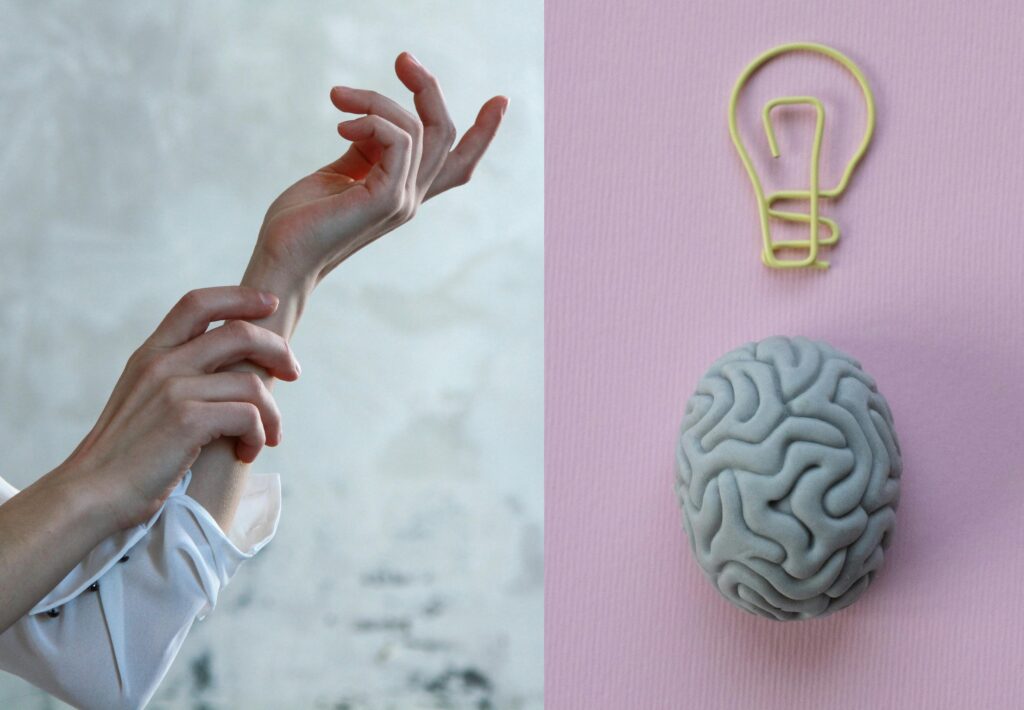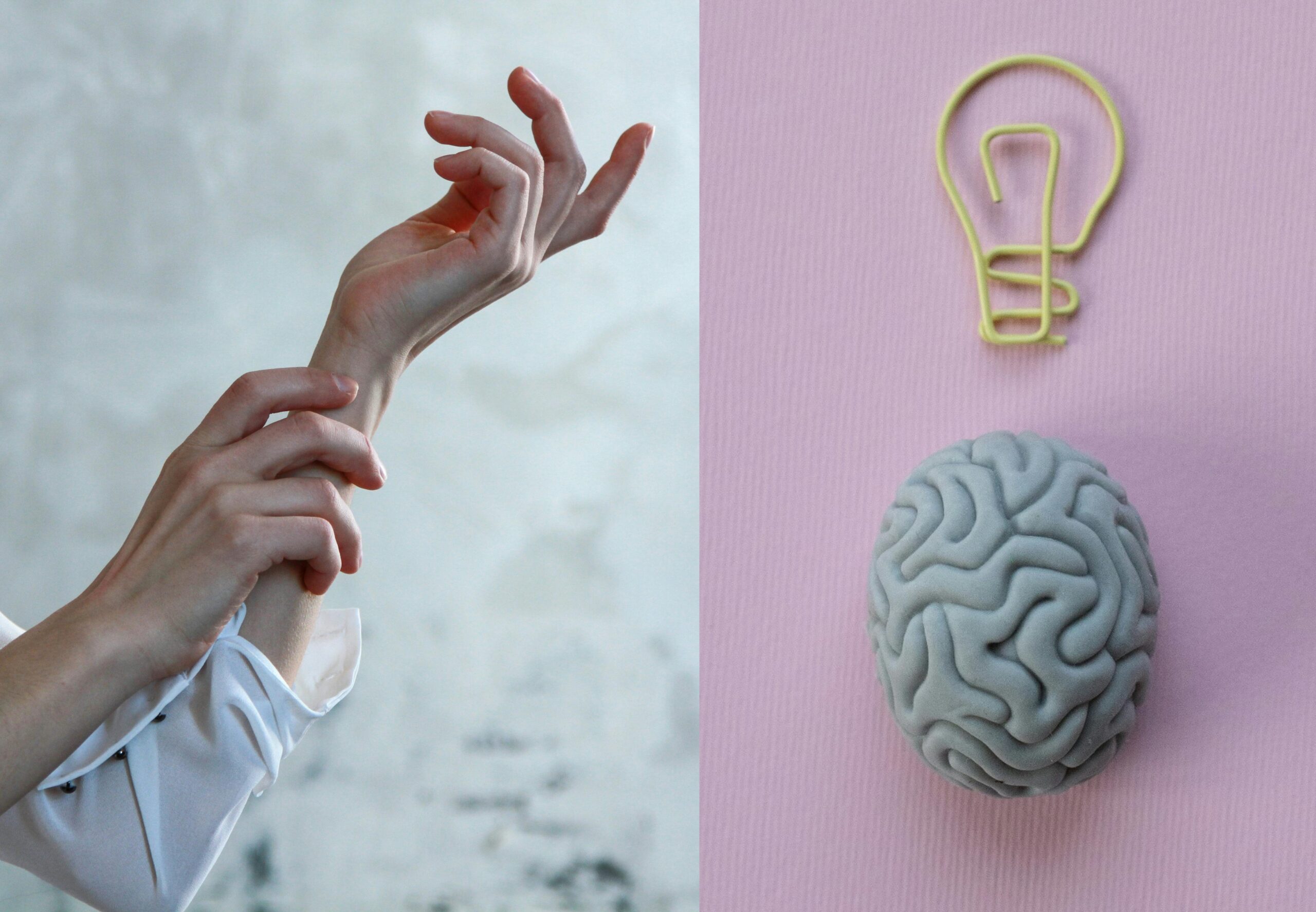Table of Contents

Introduction to Psychodermatology Disorders (Skin-Mind Connection)
The human skin, our largest organ, serves as a protective barrier and a reflection of our overall health. However, it is not just a physical shield; it is intricately connected to our psychological well-being. The emerging field of psychodermatology explores this connection, focusing on how psychological factors can affect skin conditions and how skin disorders, in turn, impact mental health. In recent years, the role of cosmetics has gained attention as a therapeutic tool in managing psychodermatological disorders, offering a novel approach to treatment that blends skincare with psychological care.
This article delves into the science of psychodermatology, examines common disorders, and explores how cosmetics can play a vital role in therapeutic strategies. We will also look at the latest scientific advancements and discuss the potential of cosmetics to enhance both skin health and mental well-being.
Understanding Psychodermatology
What is Psychodermatology?
Psychodermatology is a specialized branch of dermatology that studies the interaction between the mind and the skin. It investigates how psychological factors such as stress, anxiety, and depression can influence skin conditions and how chronic skin disorders can lead to psychological issues.
The Science Behind the Psychodermatology Disorders or Skin-Mind Connection
The skin and brain share a common embryonic origin, both developing from the ectodermal layer during embryogenesis. This biological link explains the close connection between the skin and the central nervous system. Neurotransmitters, hormones, and inflammatory mediators play crucial roles in this interaction, where psychological stress can trigger or worsen skin conditions like psoriasis, eczema, and acne.
Common Psychodermatology Disorders
- Psoriasis: A chronic autoimmune condition characterized by rapid skin cell production, leading to red, scaly patches. Psoriasis is often exacerbated by stress, and the visible nature of the disease can lead to significant psychological distress.
- Atopic Dermatitis (Eczema): A condition marked by itchy, inflamed skin that can be triggered by stress and anxiety. The persistent itching and discomfort often lead to sleep disturbances and emotional strain.
- Acne Vulgaris: A common skin condition that affects millions worldwide. While acne is primarily influenced by hormonal changes, stress can exacerbate breakouts, leading to a cycle of psychological distress and worsening skin conditions.
- Alopecia Areata: An autoimmune disorder that causes hair loss. Stress is a known trigger, and the resulting hair loss can lead to anxiety and depression, further complicating the condition.
- Trichotillomania: A psychological condition where individuals feel compelled to pull out their hair, often leading to noticeable hair loss and skin damage. This disorder is closely linked to anxiety and obsessive-compulsive behaviors.
The Therapeutic Role of Cosmetics
Cosmetics as Therapeutic Agents
In psychodermatology, cosmetics are increasingly recognized not just as beauty products but as therapeutic tools that can improve skin health and psychological well-being. By addressing both the physical and emotional aspects of skin conditions, cosmetics offer a holistic approach to treatment.
How Cosmetics Influence Skin Health and Mental Well-being
- Skin Barrier Repair: Many skin conditions, such as eczema and psoriasis, involve a compromised skin barrier. Cosmetics that contain ceramides, hyaluronic acid, and niacinamide can help repair the skin barrier, reducing inflammation and improving skin hydration. Improved skin health often leads to a decrease in psychological stress.
- Soothing Ingredients: Cosmetics formulated with calming ingredients like aloe vera, chamomile, and green tea extract can help soothe irritated skin, providing relief from the discomfort associated with conditions like rosacea and eczema. The calming effect on the skin often extends to a calming effect on the mind.
- Anti-inflammatory Properties: Ingredients such as salicylic acid, benzoyl peroxide, and sulfur are effective in reducing inflammation associated with acne. By reducing the visible symptoms, these cosmetics can alleviate the emotional burden associated with acne, such as low self-esteem and social anxiety.
- Camouflage Products: Cosmetics designed to cover up skin imperfections, such as color-correcting concealers and foundations, can significantly boost a person’s confidence. For individuals with conditions like vitiligo, rosacea, or acne scars, these products offer a way to improve appearance and, consequently, mental well-being.
The Psychological Impact of Skin Care Rituals
Skin care routines can be therapeutic in themselves. The act of caring for one’s skin can serve as a form of self-care, promoting relaxation and reducing stress. The sensory experience of applying skincare products—such as the texture, scent, and temperature—can have a calming effect on the nervous system, further enhancing mental well-being.
Recent Scientific Advances in Psychodermatology
Innovations in Cosmetic Science
The field of cosmetic science is rapidly evolving, with new formulations and ingredients being developed to specifically target psychodermatological disorders. Some of the latest advancements include:
- Probiotic Skincare: Research has shown that the skin’s microbiome plays a crucial role in its health. Probiotic skincare products are designed to restore and maintain a healthy balance of bacteria on the skin, which can help reduce inflammation and improve conditions like acne and eczema.
- Neurocosmetics: This emerging category of skincare focuses on the interaction between the skin and the nervous system. Neurocosmetics contain ingredients that can influence the release of neurotransmitters, helping to reduce stress-related skin issues and improve overall skin health.
- Cannabidiol (CBD) in Skincare: CBD, a non-psychoactive compound found in cannabis, has gained popularity in skincare due to its anti-inflammatory and calming properties. Studies have shown that CBD can help reduce the symptoms of psoriasis, eczema, and acne, while also alleviating anxiety and stress.
- Peptide-Based Treatments: Peptides are short chains of amino acids that play a key role in skin health. Recent advances in peptide technology have led to the development of cosmetics that can stimulate collagen production, reduce inflammation, and promote skin healing, offering new hope for those with psychodermatological conditions.
Integrative Approaches: Combining Dermatology and Psychology
The future of psychodermatology lies in integrative treatment approaches that combine dermatological care with psychological support. Cosmetic products designed with this holistic approach in mind are becoming increasingly popular. These products not only address the physical symptoms of skin disorders but also include ingredients that promote relaxation, reduce anxiety, and improve mood.
Examples of integrative approaches include:
- Mindfulness-Based Stress Reduction (MBSR): Incorporating mindfulness practices into skincare routines can enhance the therapeutic effects of cosmetics. Mindfulness has been shown to reduce stress and improve skin conditions by lowering cortisol levels, a stress hormone that can exacerbate skin problems.
- Cognitive Behavioral Therapy (CBT) and Skincare: CBT is a well-established treatment for managing anxiety and depression. When combined with skincare, CBT can help individuals develop healthier coping mechanisms for dealing with the emotional impact of skin conditions.
The Future of Psychodermatology and Cosmetics
Emerging Trends and Innovations
As research in psychodermatology advances, the role of cosmetics in treatment is expected to expand. Future trends may include:
- Personalized Skincare Solutions: Advances in genetic testing and microbiome analysis could lead to personalized skincare products tailored to an individual’s unique skin needs and psychological profile.
- AI-Driven Skincare: Artificial intelligence is poised to revolutionize the skincare industry by providing personalized recommendations based on skin type, lifestyle, and mental health status. This technology could help individuals find the most effective products for managing their psychodermatological conditions.
- Holistic Wellness Centers: The integration of dermatology, psychology, and cosmetic science may lead to the development of holistic wellness centers that offer comprehensive treatment plans. These centers could provide a range of services, from dermatological treatments and skincare consultations to stress management programs and psychological counseling.
Challenges and Considerations
While the potential of cosmetics in psychodermatology is promising, there are challenges to consider:
- Ethical Concerns: As the line between cosmetics and therapeutic treatments blurs, there is a need for clear guidelines and ethical considerations to ensure that products are safe and effective.
- Accessibility: Ensuring that these advanced cosmetic treatments are accessible to all individuals, regardless of socioeconomic status, is a critical concern that needs to be addressed.
- Scientific Validation: While many cosmetics claim to offer therapeutic benefits, rigorous scientific validation is necessary to substantiate these claims and ensure that consumers are receiving products that truly deliver on their promises.
Conclusion: Embracing a Holistic Approach to Skin and Mind Health
The intersection of dermatology and psychology through the lens of psychodermatology offers a new paradigm in healthcare. Cosmetics, once considered mere beauty enhancers, are now emerging as powerful tools in the treatment of psychodermatological disorders. By addressing both the physical and emotional aspects of skin conditions, cosmetics provide a holistic approach to treatment that can enhance both skin health and mental well-being.
As scientific research continues to advance, the therapeutic potential of cosmetics in psychodermatology will likely expand, offering new hope to those suffering from these complex disorders. By embracing this holistic approach, healthcare providers can offer more comprehensive care, improving the quality of life for countless individuals.
Frequently Asked Questions (FAQs)
- What is psychodermatology?
Psychodermatology is the study of the interaction between the mind and skin, focusing on how psychological factors affect skin conditions and vice versa. - Can cosmetics really help with skin conditions?
Yes, certain cosmetics can play a therapeutic role by improving skin health and reducing the psychological impact of skin conditions. - What are neurocosmetics?
Neurocosmetics are skincare products that interact with the nervous system, helping to reduce stress-related skin issues and improve overall skin health. - How do probiotics benefit the skin?
Probiotics help balance the skin’s microbiome, reducing inflammation and improving conditions like acne and eczema. - Is CBD effective in treating skin conditions?
Research suggests that CBD has anti-inflammatory and calming properties that can help manage conditions like psoriasis, eczema, and acne. - What is the role of skincare in mental health?
Skincare routines can serve as a form of self-care, promoting relaxation and reducing stress, which in turn can improve skin health. - Are these treatments accessible to everyone?
Accessibility is a concern, and efforts are needed to ensure that advanced cosmetic treatments are available to all individuals, regardless of socioeconomic status. - What is the future of psychodermatology?
The future of psychodermatology lies in personalized skincare solutions, AI-driven recommendations, and integrative wellness centers that combine dermatology, psychology, and cosmetic science.
References
https://www.mdpi.com/2624-8611/3/3/20
https://www.ncbi.nlm.nih.gov/pmc/articles/PMC10456085
https://www.mdpi.com/2077-0383/12/1/172
https://www.nature.com/articles/s41598-024-60937-3
https://www.mdpi.com/2075-4426/14/2/133
https://www.mdpi.com/2077-0383/12/12/3997
YouTube linkhttps://youtube.com/shorts/tqtWFPskEHU?feature=share

